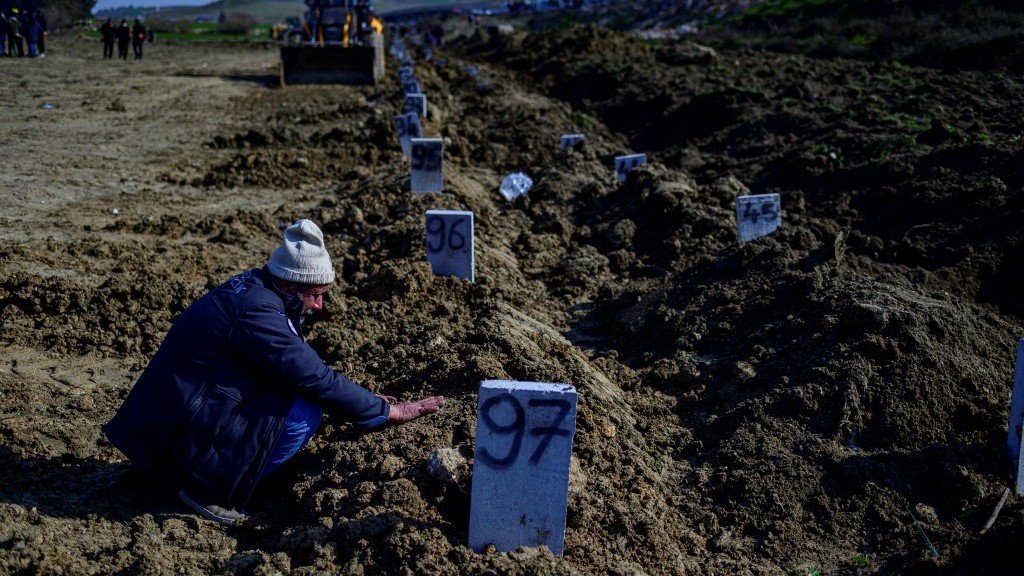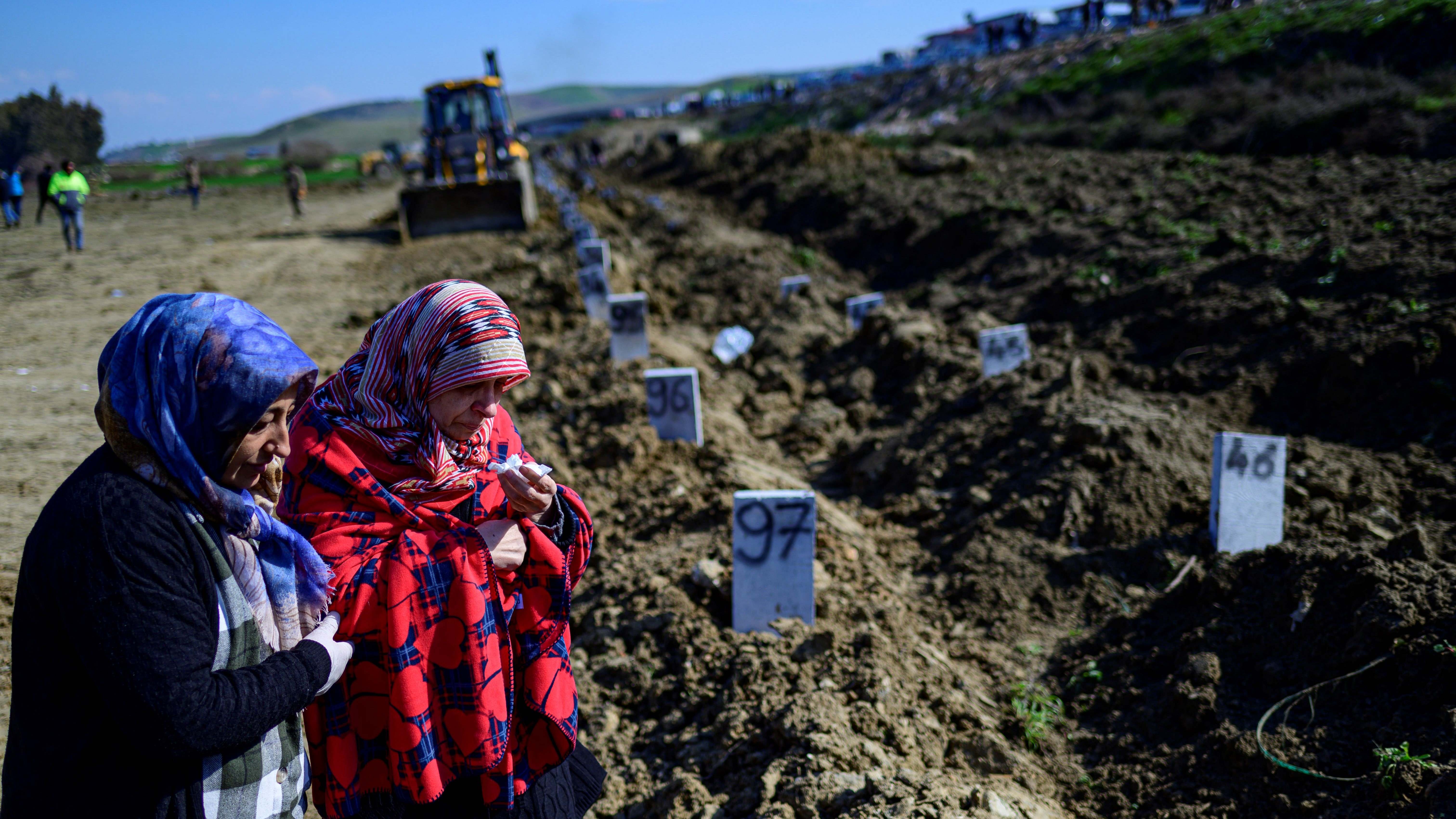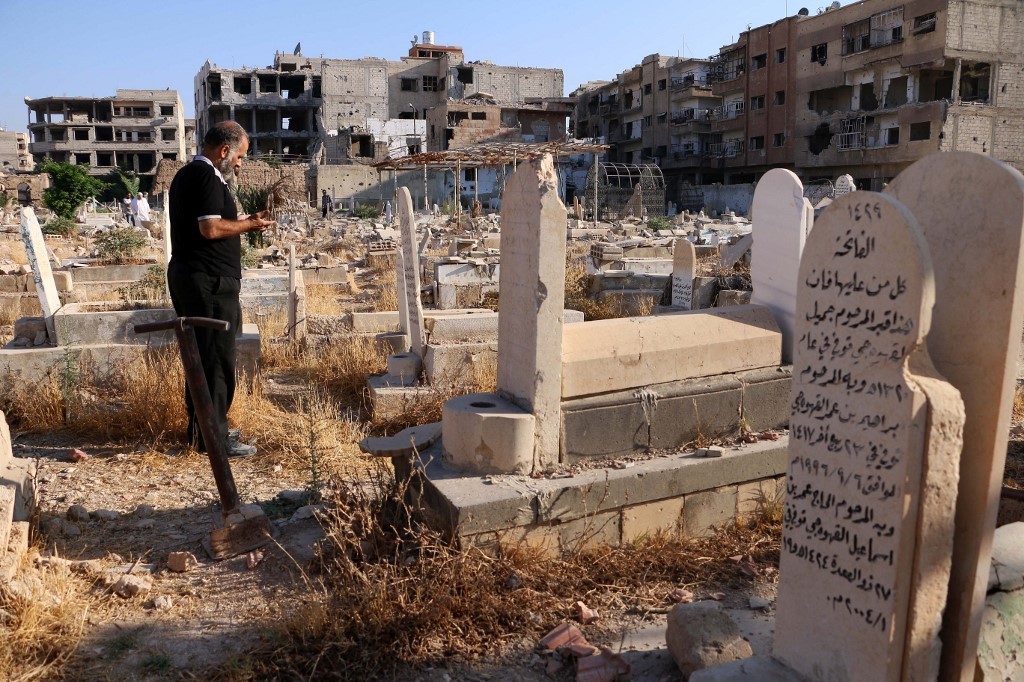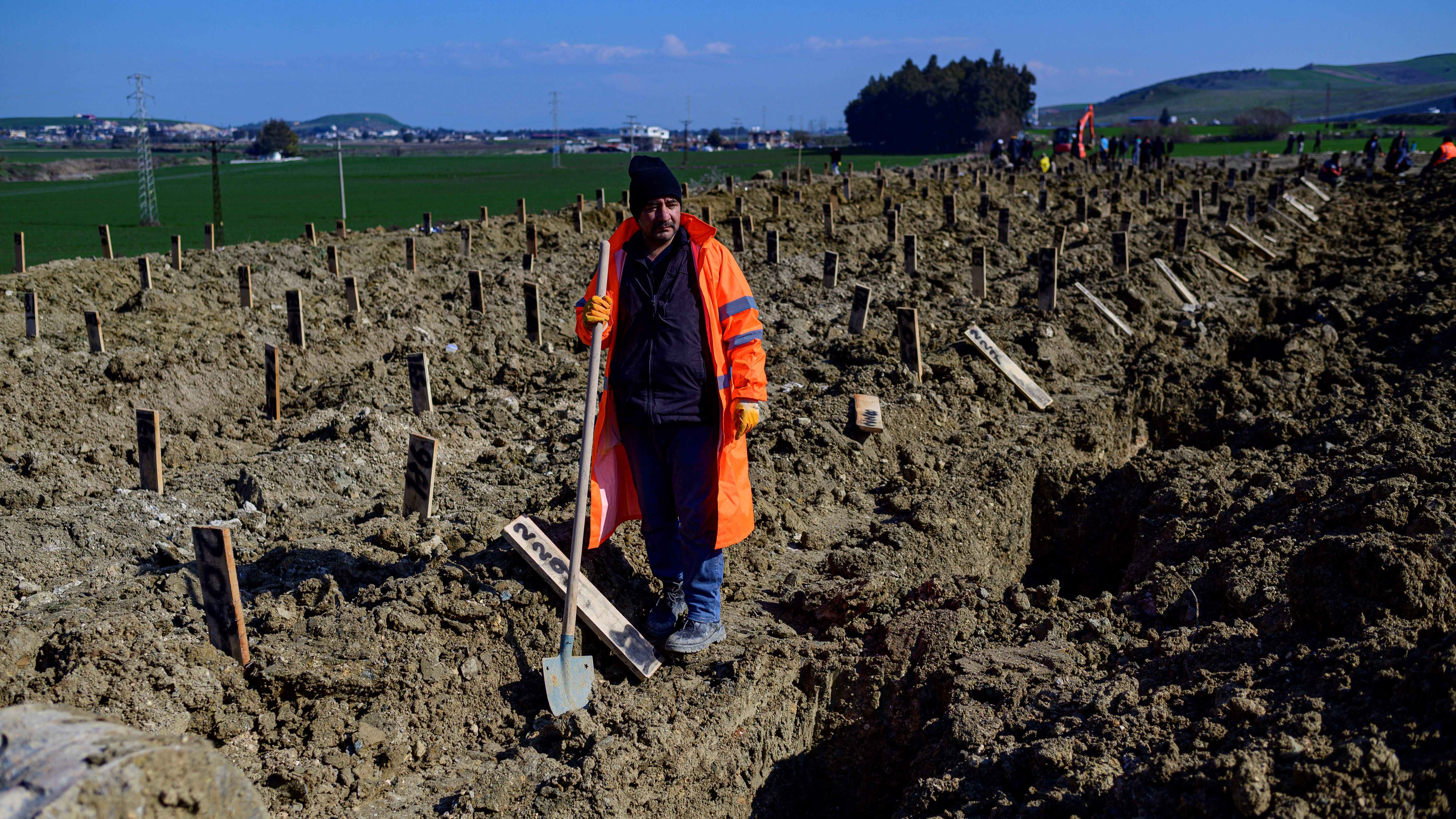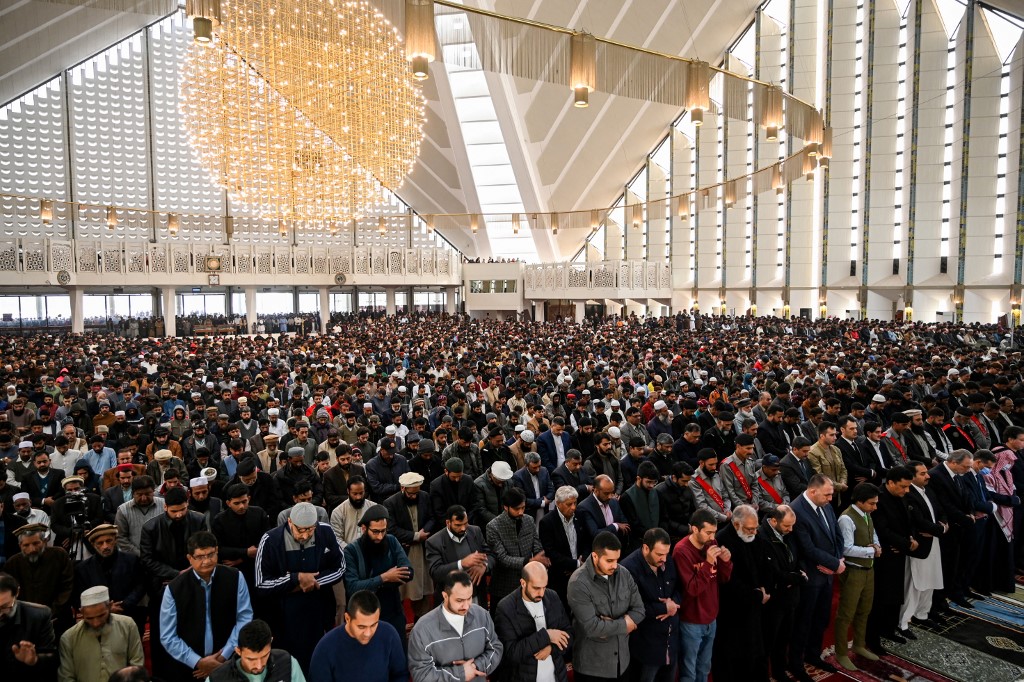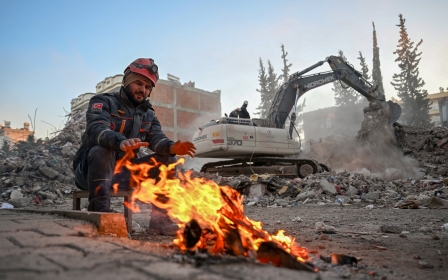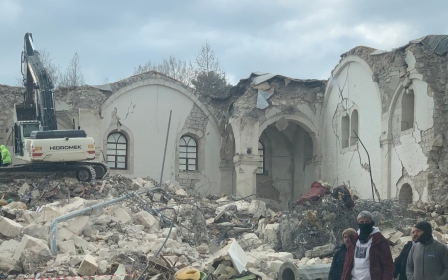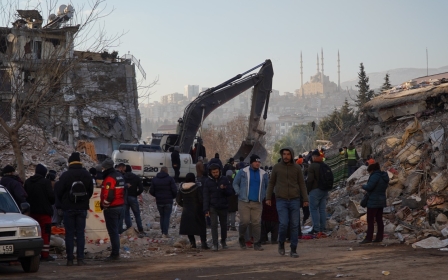Turkey-Syria earthquake: How do funerals work in Islam?
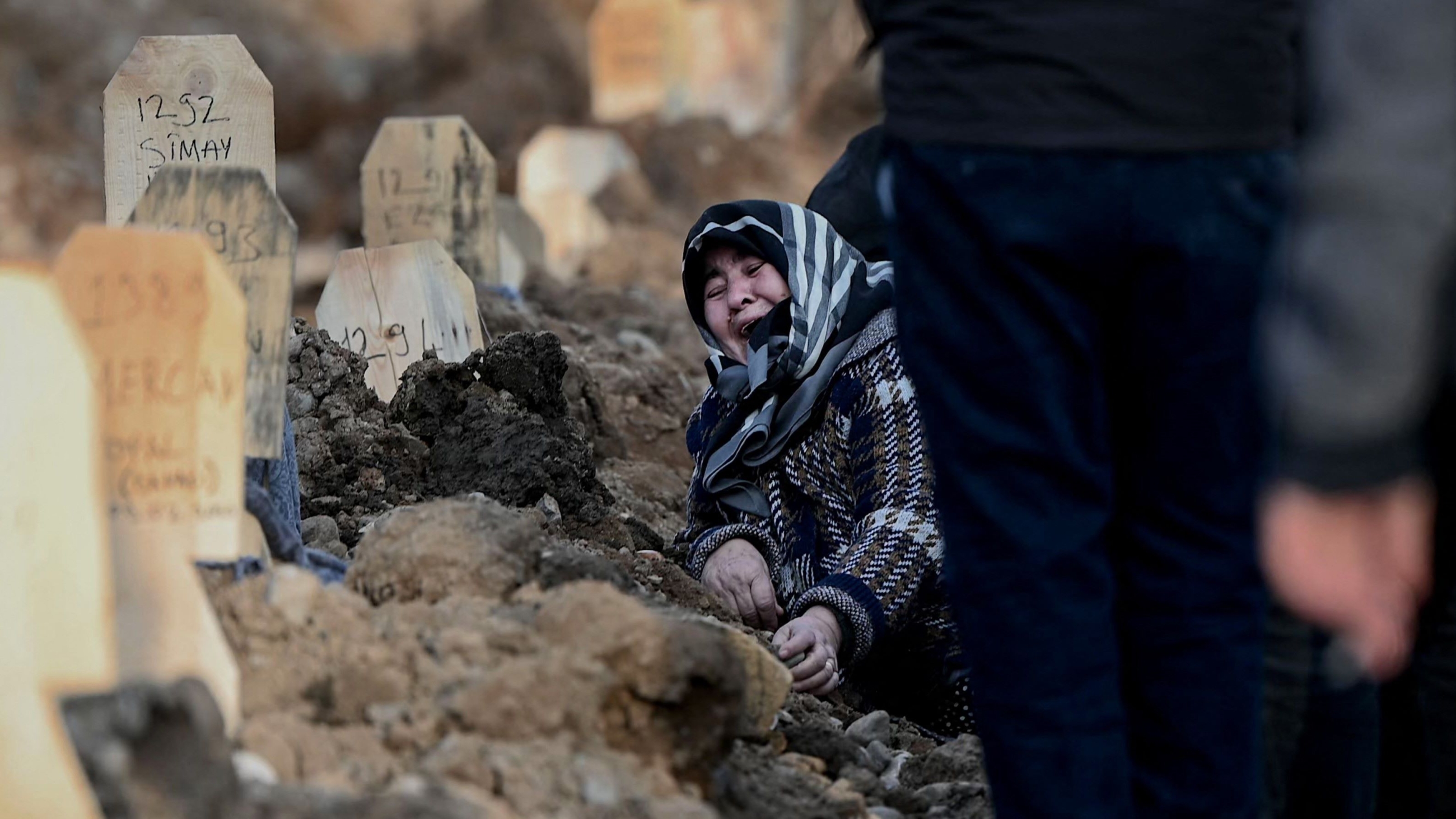
Losing a loved one is one of the most significant events of a person's life and can be difficult to deal with even if the loss was expected and arrangements are in place.
For the survivors of the earthquakes in Turkey and Syria in February, the shock of losing relatives and friends comes with the responsibility of making sure they are buried according to their traditions.
As the vast majority of those affected by the disaster are Muslims, religious leaders usually work with government officials to ensure correct rites are performed for those who have died.
While in times of natural disaster some ceremonial aspects of an Islamic funeral are forgone, such as the gathering of relatives at a deceased person's home, there are still customs and codes that are followed.
A key principle in Islamic burials is that the body of the deceased is dealt with in a way that preserves its dignity, as well as respecting those grieving.
There is also an emphasis on arranging the burial as soon as possible after a person has passed away so that the process of closure can begin.
Here Middle East Eye looks at the key aspects of Islamic burial within the context of natural disasters.
When should someone be buried?
According to Islamic law, when a person dies, they should ideally be buried before sunset on the day of their death and typically within 24 hours.
However, there can be some exceptions, particularly if the cause of death is unidentified and needs to be examined further.
In the case of natural disasters, logistical difficulties in burying mass casualties are also a factor, with ordinary graveyards becoming overwhelmed and new plots of land needing to be found.
Islam does not allow cremation as the religion places an emphasis on the preservation of the body, which Muslims believe will be resurrected on the Day of Judgement.
While Islam strictly prohibits cremation, in some cases, embalming is allowed if there is a need to do so.
“In some countries it's the law to embalm because for those handling the coffin, they want to know that it doesn’t pose a health risk,” a spokesperson for East London Mosque’s Muslim funerals service told Middle East Eye.
“Our religion is based on intention, so we try our best to bury according to Islamic guidelines,” he added.
How is the body prepared for burial?
There is also no concept of a wake or viewing in Islam and instead mourners recite a short prayer before preparing the body for burial.
After someone dies, members of the family and close friends take part in the janaza (funeral), which involves ritually washing the body three times in a process known as ghusl, and wrapping it in white sheets known as the kaffan.
Those involved in the preparation are usually close family members or friends of the same gender. In many cultures it is tradition for the eldest son to lead the preparations for his father's funeral.
In cases of natural disaster like in Turkey and Syria, Islamic organisations and volunteers take on the task of arranging the funeral.
“We had the unfortunate element of having to arrange forty-plus funerals during the Grenfell fire here in London, which was tragic,” ELM’s funeral service spokesperson said.
“Like what’s happening with the earthquake in Turkey and Syria, people dying under collapsed buildings, we consider them a shaheed, or martyr.”
“Islamically speaking, these people can be buried as they are without having to be put in shrouds if it’s not possible,” he added.
Muslims usually do not allow a viewing of the body as the emphasis is on performing the funeral prayer prior to the burial. Coffins are not usually used except in countries where their use is mandated by law.
The prayer is communal and similar to the five daily prayers that faithful Muslims perform - with the exception that there is no prostrating and is instead carried out while standing with specific prayers for the dead person.
What happens at a Muslim funeral?
After the prayer, male mourners in the funeral procession will take turns carrying the body to its burial plot, chanting prayers or verses of the Quran as they do so.
While there is no dress code for mourners, many choose to wear muted colours. Women are not expected to attend a funeral, those who do so usually wear headscarves and sometimes abayas.
At the burial plot, the body is placed into the grave feet first with the face angled towards the Kaaba in the Muslim holy city of Mecca.
This is usually accompanied by the reciting of prayers and verses from the Quran.
Once the body is in position, mourners throw soil onto the grave using their hands and shovels until it is completely covered.
An imam then concludes the funeral with a prayer for the deceased and mourners leave the cemetery with the exception of one person who recites the Islamic call to prayer, or adhan, when the last person has left.
Initial grave markers are usually simple wooden signs, with family members opting to instal tombstones at a later date.
While solitary funerals are preferred in Islamic tradition, in the case of natural disasters, mass funerals become a necessity to deal swiftly with the scale of death.
Following the February earthquake, mass graves were dug as authorities struggled to keep up with the number of casualties.
Members of the victims' families and humanitarian teams have tried to adhere to Islamic principles by marking graves with headstones and identifying bodies.
How long is the mourning period?
Muslims have a three-day mourning period but some traditions, including Shia Muslims, mourn for 40 days after the death.
During this time, close family members and relatives tend to stay at home, and refrain from wearing any luxurious or ornate clothing.
Well-wishers will often visit the relatives at home, bringing with them food and offering their condolences.
A wife that has lost her husband takes part in iddah, which is a four-month and ten-day waiting period, where she will largely stay home and avoid interacting with any men who are not part of her family.
What happens if you can’t find the body?
In some cases, where someone has died in a fire, at sea or their body cannot be found, Islam offers guidance on what should happen.
While some schools of thought state that it is not permissible to pray over a person who is not physically present, Salat al-Ghayeb, or absentee funeral prayers, usually take place if the body is not found.
The absentee prayer should take place within a month of the person’s death.
In 2018, Muslims around the world took part in prayers in absentia for the slain journalist Jamal Khashoggi, as his body was not found.
In February 2023, prayers in absentia also took place at Al-Aqsa mosque in Jerusalem, for victims of the earthquake in Turkey and Syria, which claimed the lives of tens of thousands of people.
Muslims believe that taking part in funeral prayers is a communal duty upon them, even if they are not related to the deceased. In Islamic tradition, there is a spiritual reward in visiting people at the cemetery and taking part in funeral prayers.
Middle East Eye delivers independent and unrivalled coverage and analysis of the Middle East, North Africa and beyond. To learn more about republishing this content and the associated fees, please fill out this form. More about MEE can be found here.


